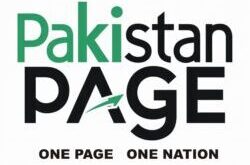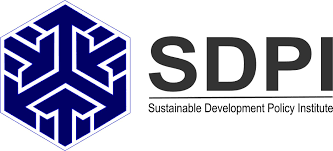Women’s financial inclusion imperative for economic empowerment: experts
ISLAMABAD: Experts deliberated upon the crucial role of financial inclusion in empowering women, noting its potential to drive both social and economic progress.
Sharing their views at a panel discussion titled ‘Towards Economic Empowerment: Women’s Financial Inclusion in Pakistan’, the experts agreed that in the paradigm of empowerment and financial access, one was impossible without the other.
The panel was part of the Sustainability Development Conference (SDC) organized by the Sustainability Development Policy Institute (SDPI).The conference was also a launchpad for the Center of Adaptive Social Protection and Economic Empowerment (CASPEE) supported by GIZ at SDPI, which would further the objectives of women empowerment and financial inclusion.
At the panel, Benazir Income Support Programme (BISP) Secretary Amer Ali Ahmad said: “Economic empowerment of society is contingent on the financial inclusion of women.”
BISP, Pakistan’s flagship social safety net programme, is a prime example, serving as a lifeline for many women, particularly those who were heads of their households.
Further, he elaborated on how in partnership with GIZ and UNICEF, BISP has launched the digital financial literacy training program, training 25,000 individuals to date.
Helene Paust, deputy head of development cooperation at the German embassy, echoed this sentiment, stressing that gender inequality remained a significant barrier when it came to financial autonomy.
“The ability of women to make money and spend money is severely restricted due to them being dependent on male family members,” Ms. Paust said.
Head of the Adaptive Social Protection Project at GIZ, Johanna Knoess, pointed out the positive impact of digital financial literacy on poverty reduction and women’s financial inclusion, citing a successful case in Kenya, where 194,000 households were lifted out of poverty.
“There is also a need to develop cross-learning opportunities with national and international partners to develop innovative financial inclusion solutions for women in Pakistan.”,” Ms. Knoess said.
Senior Policy Adviser, GIZ Frank Schneider moderated the panel discussion alongside Dr. Fareeha Armughan.
Managing Director of Kashf Foundation Roshaneh Zafar gave a presentation on the financial empowerment of women.
She said while mobile phone penetration had reached an impressive 80 per cent in Pakistan, their potential was far from being fully realized.
“Women are more willing than men to choose digital financial services and mobile wallets offer a critical opportunity for Pakistan’s under-banked and unbanked population but addressing the social and cultural barriers that restrict women’s decision-making abilities is also crucial.” Ms. Zafar said.
Deputy Governor of the State Bank of Pakistan (SBP) Saleem Ullah shed light on the progress made in increasing account ownership in the country. However, many customers still lacked access to a full range of financial services, such as credit and investment opportunities.
“We took several initiatives, including remote account opening and Asaan Mobile Accounts (AMA), to facilitate access,” he said.
Efforts to bridge the gender gap in financial services are ongoing, with SBP introducing the ‘Banking on Equality’ initiative in 2022 to make the financial environment more conducive for women, he added. Further, providing stable credit lines to microfinance institutions (MFIs) enables them to support women who constitute 70% of the MFIs’ clientele.
President of Jazz Cash Murtaza Ali elaborated on how digital platforms were the only viable solution to increase female participation in the formal financial system.
“Even after opening mobile wallet accounts, women weren’t using them, so we had to create incentives, like discounts on store purchases, to encourage usage,” Mr. Ali explained.
Apart from this, payment points are being set up within women’s communities to make financial services more accessible.
At the regional level, CEO of the Punjab Social Protection Authority (PSPA) Ali Shehzad reinforced the economic importance of investing in women.
“Investments made in women are the most beneficial in the long run, both socially and economically,” Shehzad said.
His authority runs several programmes aimed at supporting women, including financial literacy and marketable skills training for young married couples.
The forum concluded with a call for a more inclusive ecosystem that supports women empowerment, urging that the participation of all family members — especially husbands and mothers-in-law — be considered to create a supportive environment for women.
GIZ Pakistan country director Maria-Jose Poddey gave the closing remarks and shed light on how the new CASPEE center would advance Pakistan’s development goals towards adaptive social protection and financial inclusion.
SDPI Executive Director Dr. Abid Suleri concluded the session by saying that the learning from discussions, as today should be included in the curriculum taught to civil servants to truly sensitize the society and make a collective effort to strengthen women empowerment.

